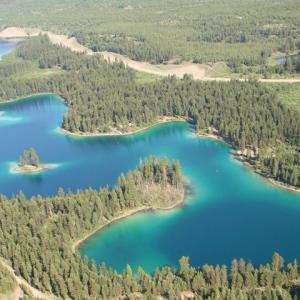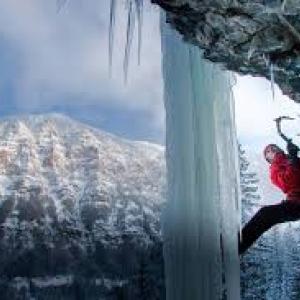Tips To Optimize The Little Time You Have To Workout
Nothing makes a workout program fruitful more than ensuring that you have your time well planned out. You’ll agree that we are living in a busy society, and life is increasingly becoming demanding now more than ever before. But you have to keep fit and stay healthy, and regular exercise is one of the most effective ways to ensure this. Nonetheless, you don’t want your workout schedule to interfere with your work, social life, and other activities.
Now, you already know the importance of exercising to your overall well-being. But with your other pressing commitments, you may find it hard to hit the gym regularly. But let’s face it, you have some downtime left after work that if well utilized, can be incorporated into your workout timeline. You’ll also notice that it gets a bit tricky to work out during the cold seasons, where it makes sense to skip sessions or retreat from exercising altogether until the weather is more favorable. But amidst the various challenges, it can be a less daunting undertaking with a few expert hints. With that in mind, here are killer tips to optimize the little time to work out.
1. Invest In The Right Gear
Now, whether you are working out during the cold winter months or the summer, investing in the right gear will motivate you to work out. The right training apparel will boost your brain to go the extra mile. You’ll also find yourself wanting to head straight to your nearest gym even if it’s to show off your new pair of sneakers blended with some fancy yoga pants. If you find yourself dragging at the gym a lot, it may be because of your choice of workout gear. One thing to also note is that during the cold season, you need to be well-clothed and protected from the harsh weather. This is especially the case if you are working out outdoors. Here are some handy tips for those working outdoors during winter:
-
Don’t just dress warm, dress dry!
-
Go for bright colors
-
Protect your fingers as the other extremities such as your ears nose and toes
-
Ensure you have good traction
-
Always ensure to warm up fast
2. Sneak In During Your Breaks
Now, if you find that going to the gym is getting in the way of picking your kids from school or running your errands in the evening, you can always opt to hit the gym during your breaks from work. But then again, this shouldn’t interfere with your work whatsoever, or else, your boss will be pissed and on your neck. While all this will be beneficial to your workout program, it may take a toll on your body. It’s therefore imperative to find a diet regime that supports your body, provides you with the energy to continue, and all the nutrients you require. For instance, a pre-workout before heading to the gym provides you with some of the most vital nutrients you require during your workouts. According to Ryan Bucki from Fitness Informant, it is also essential to pick you’re pre-workout supplement carefully if you’re looking for a pump that promotes the desired gains. You’ll also want to ensure that the supplement safe and effective, tastes good, has the right ingredients, and is of the best quality. It should also guarantee you value for money.
3. Opt For Outdoor Activities
To optimize the little time you have for your workouts, consider outdoor activities. While there are plenty of reasons to work out in the gym, sometimes it can get in your way, perhaps keeping you from enjoying the activities you love or spending quality time with your family. In addition to this, working out in the gym comes with a cost. But most people would be a bit skeptical about working out outdoors during the cold season. There are so many outdoor activities that can be incorporated in your workout program and that can be enjoyed by the whole family. So you really don’t need to restrict your workouts to the gym only. Activities such as skiing, hiking, and snowshoeing are fun and at the same time, these are easy activities yet very effective to those who may want to lose weight while having some fun with their families or friends.
4. Avoid Commuting From Work
If you have a crazy schedule, you may have little to no time for your workouts. So why not turn your commute from work into a workout? Most people spend a lot of time waiting at the subway, time that can be spent working out. There are so many ways to work out on the go, including walking, jogging, running, biking, stretching, on the go side to side lunges, and taming the stairs, just to name a few.
5. Set Realistic Goals
Most people at the onset of a new year will set fitness-based resolutions but will rarely stick to them. But for you to get the most out of your workouts with little time in your hands, you need to set your priorities right. In addition to this, you need to set realistic workout goals that are easy to stick to. Whether it’s to lose weight, gain muscle or simply want to stay fit, you need to set specific goals that can be accomplished even with a busy schedule. Here are some tips you could use:
-
Consider accomplishing one goal at a time
-
Own your goals
-
Make your goals specific and time-bound
-
Avoid setting your bar too high especially when starting out
-
Find something that will drive you
6. Be Flexible
There are so many ‘one size fits all’ work out programs out there but you need to know that not all will fit into your busy schedule. This is why you need a flexible workout program that suits your needs. Have a flexible workout calendar. Your calendar should not only include working out in the warm seasons but also during the cold winter months. While you can have a perfectly laid out plan, you should make room for life’s uncertainties such as bad weather, sickness, injury, change of work schedules, or absence. It’s important to have flexible training sessions, flexible performance goals, and a flexible training calendar.
And there you have it! The above tips will not only help you to optimize the little time you have for your workouts, but they will also help you to achieve your fitness goals. But then again, it all boils down to your willingness to adopt them, alongside realizing the importance of exercise to your overall well-being.





